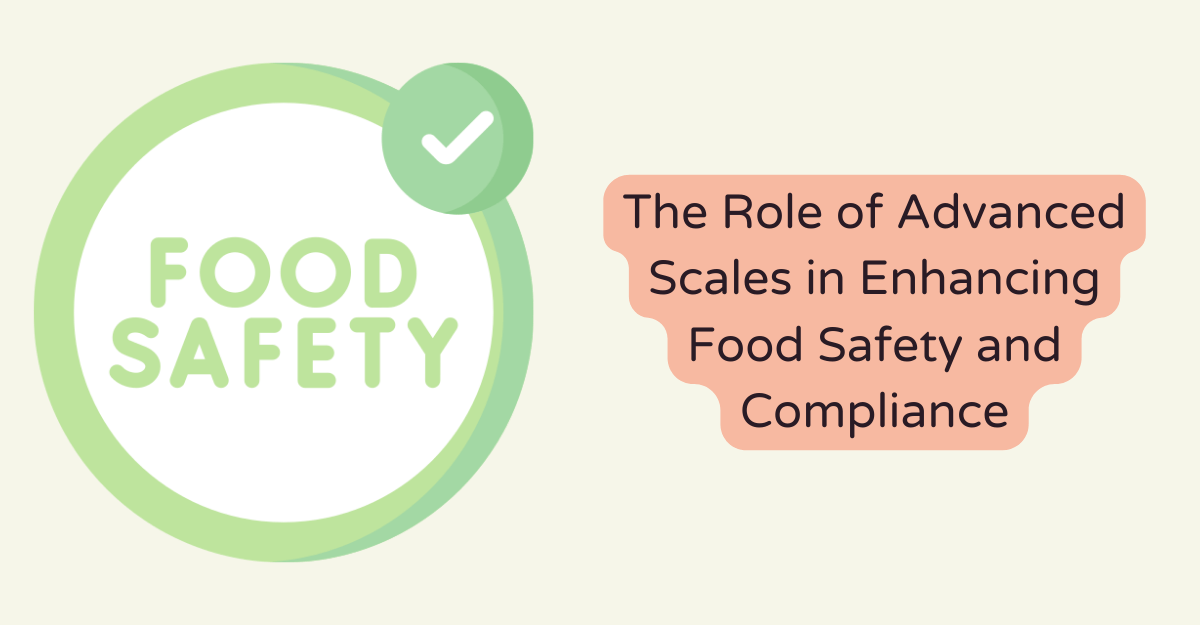
The Role of Advanced Scales in Enhancing Food Safety and Compliance
In the complex and critical world of food production, ensuring safety and compliance with regulatory standards is paramount. The stakes are incredibly high, as even minor deviations in ingredient proportions can lead to significant health risks and legal repercussions. In this context, the role of advanced scales becomes indispensable. These tools, like warehouse scales, are not just about measuring mass; they are about guaranteeing the integrity of food products, ensuring that every item that reaches consumers is safe, consistent, and compliant with the strict standards set by authorities. This article explores the multifaceted contributions of innovative measurement devices in the food industry, from precision in ingredient measurements to adherence to regulatory frameworks, underscoring their critical role in upholding food safety and compliance.
Precision Weighing for Accurate Ingredient Measurements
Smart weighing devices facilitate this precision to an unparalleled degree. Unlike traditional weighing devices, which may suffer from variability and inaccuracies, modern devices use sophisticated technologies to ensure that every measurement is exact, down to the smallest unit. This precision is vital in recipes requiring specific ratios, such as preservatives or allergens.
Moreover, accurate weighing helps maintain consistency across batches, ensuring that each product meets the established quality standards. This consistency is not just about taste or appearance; it’s about ensuring that every item produced is safe for consumption. These products, with their ability to deliver precise measurements quickly and reliably, are instrumental in achieving this level of consistency.
Meeting Regulatory Standards through Technology
Regulatory compliance is a critical concern in this industry, with laws and standards rigorously outlining how products must be produced, labeled, and handled. They play a pivotal role in meeting these regulatory standards. They do so by ensuring that the weight of packaged goods matches the weight declared on labels, a requirement in many jurisdictions to prevent consumer deception.
Furthermore, they can be integrated with traceability systems, allowing manufacturers to track and record the weight of ingredients throughout the production process. This capability is invaluable in a recall or audit, providing clear, incontrovertible evidence that products were produced per regulatory requirements. Through technology, they not only facilitate compliance but also provide a means of demonstrating it.
Enhancing Quality Control
Quality control is an ongoing process in this industry to ensure products meet established protection and quality standards. They contribute to this process by enabling precise control over ingredient ratios, which is crucial for maintaining product integrity. Ensuring that each ingredient is added in the correct amount helps prevent issues such as contamination or spoilage, which could compromise the food.
The data collected by these devices can be analyzed to identify trends or inconsistencies in the production process, aiding in timely adjustments. This quality control helps prevent potential issues before they arise, further underscoring the importance of precision weighing in maintaining the highest standards.
Optimizing Production Efficiency
Efficiency in production processes is critical to meeting the demands of the fast-paced industry while maintaining compliance standards. They enhance production efficiency by streamlining the weighing process, reducing the time and labor required to measure ingredients accurately. This efficiency speeds up production and decreases the risk of human error, which can cause concerns or non-compliance.
Moreover, manufacturers can further optimize their operations by integrating them with other systems, such as inventory management or automated mixing. This helps the seamless flow of information and materials, minimizing delays and ensuring that compliance is maintained at every production stage.
Integration with Food Safety Management Systems
Integrating them with Food Safety Management Systems (FSMS) enhances protection and compliance. FSMS, such as HACCP and the GFSI benchmarks, require meticulous monitoring and control of production processes to identify and mitigate risks. When integrated with these systems, these devices provide a seamless and automated method to collect, record, and analyze critical ingredient weights and proportions data, essential for hazard analysis and ensuring critical control points are managed effectively. This automatically triggers alerts when deviations from set parameters occur, enabling immediate corrective actions to prevent potential hazards. For instance, if an ingredient’s weight exceeds or falls short of the critical limit set in the HACCP plan, the system can instantly flag the issue for review. Moreover, this interconnected approach facilitates a comprehensive audit trail, which is crucial for verifying compliance during inspections or audits.
Furthermore, the integration enhances traceability throughout the production process, enabling manufacturers to track the flow of ingredients and finished products through each production stage. This level of traceability is invaluable in the event of any incident, allowing for rapid identification and isolation of affected products to prevent widespread health risks.
By bridging advanced weighing technologies with FSMS, this industry can achieve higher precision, control, and accountability in food safety management. Compliance with the safety regulations ensures that the products are safe for consumption and boosts customer confidence in their quality. As this industry advances, incorporating advanced weighing systems with FSMS will be crucial in shaping the future of safety and compliance.
Conclusion
In conclusion, the importance of these devices in this industry cannot be overstated. Like warehouse scales that ensure the precise measurement of goods, advanced scales in food production are crucial for maintaining safety, compliance, and quality. They are the silent guardians of the industry, working tirelessly to ensure every product meets the stringent standards protecting consumers. As technology evolves, they will remain at the forefront of efforts to enhance safety and compliance, embodying the industry’s commitment to upholding the highest standards of integrity and public health.






